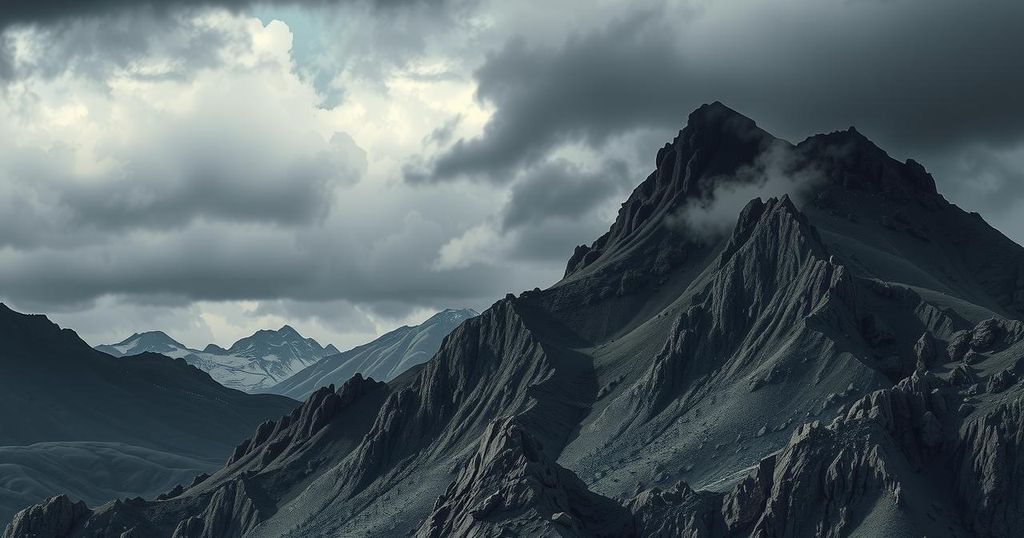Sudan’s Journalists Brave Danger to Report War Atrocities

Sudanese journalists face extreme risks while reporting the ongoing war, particularly in Darfur. With over 28 reporters killed and many more detained since April 2023, they rely on dangerous methods to send crucial stories about violence and ethnic cleansing. Despite lacking protection and resources, their commitment to informing the world about these atrocities persists, highlighting the vital role of journalism in conflict zones.
Journalists in Sudan are undertaking immense risks to document the war, particularly from areas like Darfur, where they face significant hazards including violence and communication blackouts. Many reporters have resorted to climbing mountains near the border with Chad to find signal access to relay critical information about the ongoing conflict, including reports of heinous acts such as sexual violence and massacres.
Since the fighting between the Sudanese army and the Rapid Support Forces (RSF) escalated in April 2023, over 28 journalists have lost their lives, while many others have been detained, tortured, and rendered without basic necessities such as electricity and internet. Noon, a 35-year-old journalist who chose to remain anonymous for safety, fled El-Geneina after reporting brutal killings influenced by ethnic tensions, which allegedly claimed the lives of approximately 15,000 Massalit people, thus inciting accusations of genocide.
Her life took a dark turn following multiple raids by the RSF, where she experienced severe harassment, leading her to relocate to a safer area, Gedaref, approximately 1,800 kilometers away. However, upon resettling, she faced new challenges, including being arrested by the army under false pretenses of collaborating with the RSF, which resulted in an enforced agreement requiring government approval for every article she planned to write.
Despite the perilous environment, some journalists, such as photojournalist Ibrahim in North Darfur, continue to report, albeit covertly. Ibrahim highlighted the severe repercussions of being discovered while voicing his concerns about oppression and violence. His past experience of being tortured by the RSF exemplifies the intimidation faced by reporters in the region.
The press freedom situation in Sudan has severely deteriorated, with numerous journalists fleeing and others left stranded. Veteran reporter Youssef, who relied on agricultural work to sustain himself due to the war’s impact on his previous role, remains in constant danger, having been detained and tortured simply for being a journalist, an experience he described as the “biggest crime.”
Both Youssef and Ibrahim lament a lack of support from media organizations, yet retain a fervent commitment to their mission. Ibrahim has transformed a local coffee shop into an improvised newsroom, emphasizing the critical role of journalism in exposing the atrocities occurring in Darfur, asserting, “No one else will tell these stories. No one can imagine the atrocities happening here.”
In conclusion, Sudan’s journalists continue to bravely risk their lives to document the harrowing events of the war, particularly in regions such as Darfur. Despite facing violence, detainment, and dire living conditions, their commitment to reporting the truth remains steadfast. The absence of adequate support from media organizations compounds their struggles, yet their dedication underscores the critical need for visibility into the atrocities occurring amid this conflict. Their resilience highlights both the significance and the perils of journalism in challenging environments.
Original Source: www.france24.com







